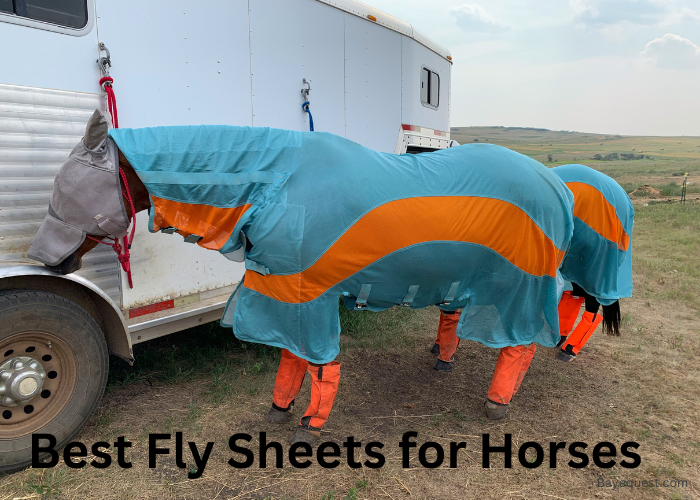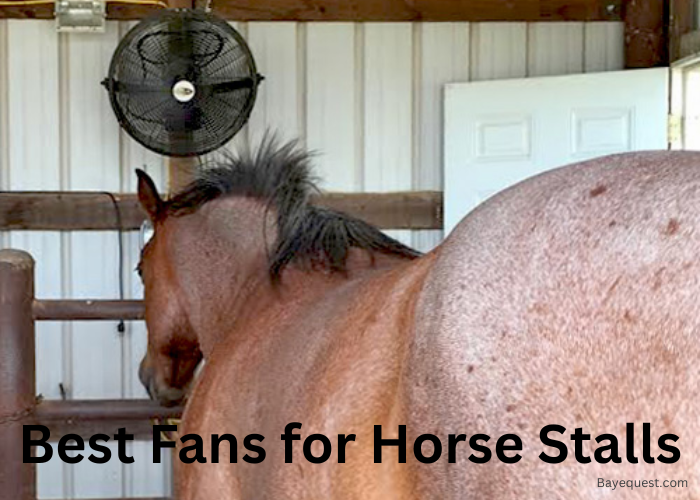Finding your equine a home is one of the biggest challenges of owning a horse. Reining them in a tiny barn in the backyard is cruel.
Moreover, it may land you in trouble with local government or animal welfare groups.
That leaves commercial boarding as your best option. Fortunately, many boarding facilities are friendly and welcoming. The best ones will even send a truck to pick up the horse.
Unfortunately, commercial boarding isn’t cheap. Below is a breakdown of the common plans to determine which program best suits your needs.
How Much Does it Cost to Board a Horse? Key Takeaway
The average cost to board a horse is $400 to $500. However, the actual costs range from as little as $100/month in a self-care facility to as much as $2,000/month at a luxurious full-care facility. For instance, LIV Stables in California charges up to $1,400/month, while the Iron Horse Equestrian Center in East Bay charges $1,200+ for most boarding plans.
What’s Horse Boarding?
Horse boarding means equine accommodation at a commercial or private facility at a weekly or monthly charge.
It’s the perfect solution for urban dwellers needing extra space or full-time workers needing more time to care for a horse properly.
Boarding facilities are large properties measuring hundreds of acres for the horse’s comfort. Moreover, the facilities have modern facilities, including trails and arenas, for horse training.
Above all, the facilities employ full-time staff to care for your horse around the clock. Thus, you can focus on your job, knowing your horse is in good hands.
Pros and Cons of Horse of Boarding Facilities
Everyone has a different opinion about horse boarding. So, it helps to evaluate the pros and cons to determine whether boarding is right for you.
Horse Boarding Pros
- You don’t need an expansive property to keep your horses
- You’re not responsible for maintaining or repairing the stable
- The staff takes care of all (or selected) horse care routines
- Access to professional care and expert horse training
- The facility provides liability insurance
- Multiple boarding programs to choose from
Hore Boarding Cons
- Horse boarding programs are expensive
- You have little say in routine care practices
- Can you trust the facility to take the best care of your horse?
Full Care Boarding Costs
Full-care, also known as full-service, is the most expensive horse boarding plan. But it’s also the most convenient for owners with busy schedules.
What is Full-Care Boarding?
In a full-care program, the facility staff oversees every aspect of equine care, including feeding, mucking, and medical care.
More importantly, each horse has a special stall and supervised turnout. The following are some of the perks of full-care boarding;
- Access to pasture and stall
- Special tack and supplies area
- Hay/pasture and water round the clock
- Free use of stable facilities
- Generic feeding twice a day
- Scheduled farrier and vet visits
Pros and Cons of Full-Care Boarding
Convenience is the main advantage of full-care boarding. Knowing your horse is under the best care, you always have peace of mind. Thus, you can go on vacations and trips without worrying about your horses. Also, you can request extra services (at a fee). The facility will happily comply.
Unfortunately, full-care boarding programs are the most expensive on this list. Worse still, the fee typically depends on the type of horse. You’ll pay more for superior breeds.
How Much Does Full-Service Boarding Cost?
Full care horse boarding prices range from $300/month to $700/month at standard facilities. However, luxurious stables charge as much as $2,000/month.
Self-Care Boarding Costs
Self-care facilities are a great boarding option if full-care plans are out of our budget. Though a little more demanding, they are highly flexible and way more affordable.
What is Self-Care Boarding?
In self-care boarding, the facility provides housing while the owner oversees daily care. For instance, the owner must arrange feeding, grooming, and watering. This means you must bring the hay and feed the horses. Also, you must bring the grooming supplies and do the actual cleaning, shampooing, and the rest. You also must bring watering buckets and water to the boarding facility.
So, what are some of the perks?
- The facility provides the land where your horse lives
- Access to certain facilities, like a barn
Pros and Cons of Self-Care Boarding
Cost is the biggest advantage of self-care boarding. It’s the most cost-effective way to board your horse if you cannot keep them at home. Also, you may learn a few things about equine care and even meet other horse owners for knowledge exchange.
Meanwhile, the biggest drawback is inconvenience. You’re 100% responsible for the horse’s routine care. This often means you must be at the boarding facility for the better part of the day, which can be hectic depending on the distance. Additionally, the owner must buy and transport the feed and water, arrange farrier and veterinarian services, and plan for the horse’s exercises and training.
What’s the Cost to Board a Horse at a Self-Care Facility?
Self-care boarding costs $100 to $200/per month, depending on the location. However, it’s less common than other boarding programs.
Pasture Boarding Costs
Pasture care is a compromise between full service and self-care. The facility provides all the basics your horse needs at a fraction of full-care costs.
What is Pasture Boarding
A Pasture board involves multiple horses living together outside in the open fields where they freely graze and exercise, with a run-in shelter and a barn to escape inclement weather. The horses also enjoy free water around the clock.
The staff regularly check and top-up the feed and water. They also substitute pasture with hay during winter and clean the feeding troughs and watering equipment.
The facility schedules farrier and vet services for all the horses. However, the owner foots the bills separately. The staff can also arrange special training at the owner’s request.
Thus, the main perks include;
- Adequate feed and hay (in winter)
- Shelter and a sufficient barn for bad weather
- Staff can schedule extra services on request
- Emergency care and warm blankets when needed
- A designated area for horse tack and supplies
Pros and Cons of Pasture Boarding
Many owners love pasture boarding because horses get everything they need at a fraction of full-care costs. Moreover, pasture boarding is almost like keeping horses in their natural habitat. They can forage, run, and interact with other animals, like in the wild.
But forget about individual care. Also, owners must be prepared to pay out of pocket for extras, such as vet care and farrier services.
What’s the Average Cost of Pasture Boarding?
The costs vary significantly depending on where you live. Nonetheless, most pasture-board facilities charge $150/month to $400/month.
Lease Boarding Costs
Some facilities offer special boarding arrangements for mutual benefit. Two such programs are lease and partial boarding.
What’s Lease Boarding?
Lease boarding is when an equine facility houses and takes care of your horse for a subsidized fee in exchange for a few benefits.
For instance, a facility seeking breeding stallions may accept superior equines on full or partial leases.
Alternatively, the facility may use the horses for training or selected shows. A full lease means the owner pays nothing. Meanwhile, partial leases are subsidized.
It’s a great way to save on boarding costs. But read the agreement carefully before signing to protect your horse from mistreatment.
Pros and Cons of Lease Boarding
Lease programs subsidize horse boarding costs while offering great care and upkeep. The facility may even cover the horse’s insurance and medical bills. However, there’s a risk of overuse and mistreatment.
How Much Does Lease Boarding Cost?
Lease boarding costs start at $0/month for full-lease programs to several hundred per month for partial board plans.
Partial Boarding Costs
Partial boarding is a hybrid of full-care and self-care boarding. Thus, it costs more but involves less work than self-care plans and occasionally makes the perfect compromise.
What is Partial Boarding?
Partial boarding is where the horse gets housing space while the owner supplies the feed and hay. However, unlike self-care plans, the staffer is obligated to feed your stock. The facility may also provide staff for basic grooming. However, the owner buys the bedding and maintains the stable.
Other partial boarding perks include;
- Unlimited access to water
- Tack and supply storage
- A shed or stable
Pros and Cons of Partial Boarding
Partial boarding offers many full-care perks at a fraction of the cost. Owners also enjoy unlimited access to the equine. Unfortunately, it’s more expensive than self-care while putting substantial demand on the owner.
How Much Does Partial Boarding Cost?
Depending on the agreement’s specifics, partial boarding programs cost $300-$1,200. The more responsibilities the facility takes up, the higher the cost.
Other Types of Horse Boarding Facilities
There are several other horse boarding arrangements that owners can explore. The following are a few standout options;
- Stall boarding: Your horse gets a special stall at a stable. They also get food and water and have access to various equipment at the facility. The rates start at $200/month.
- Paddock boarding: This program is similar to stall boarding, except that horses spend time in a paddock rather than a stall. Paddock boarding prices start at $200/month.
- Shared boarding: The horse owner shares boarding costs with an enthusiast in exchange for some time with the horse. The two share the costs and time spent with the horse.
Interesting read: How Big Should a Horse Stall Be?
How to Plan for Pasture and Self-Care Boarding
Owners who opt for self-care and pasture boarding plans must be prepared to contribute significantly to the horse’s daily care.
Here’s a breakdown of the cost of a horse per month.
- Procuring the feed: The average horse consumes $100 to $150 worth of hay in the summer and up to double that in winter. You also need $100-$200 worth of supplements monthly.
- Grooming: Farrier services cost $25 to $50 monthly. But special shoeing services cost over $150/month. Additionally, a horse needs grooming supplies, including combs, buckets, and scrapers.
- Accessories: Except for full-service facilities, horse owners are often responsible for accessories, including the saddle and saddle bags. A complete horse tack costs $200 to $2,000+.
- Medication and vet care: Horse owners spend $150 to $350 monthly on healthcare and veterinary services. Plan accordingly for vaccinations, deworming, and dental care. The horse may also require emergency care.
- Horse Training Costs: Regular horse training costs $200/month in most states. However, special training costs more. For instance, some facilities charge $50/training session.
- Show Costs: Boarding facilities can help you discover and enter equine shows and championships at a small fee. The costs range from $50 to $200+/event. Additionally, owners are responsible for show costumes.
FAQs
How Much Does it Cost to Board Your Horse Per Month?
Monthly horse boarding fees range from $400 to $500. But the prices can be as low as $100 or as high as $2,000+, depending on the boarding plan and location. Lease boards are the least expensive, while full-service plans are the most expensive.
How Much Does Keeping Your Horse at Home Cost Per Year?
Keeping a horse at home costs $300 to $450, equivalent to $3,600 to $5,400 annually. Feeding is the biggest cost, consuming over $200/month ($2,400+/year). But you can cut feeding costs by growing hay. You need two acres per horse and a few hay bales for winter.
How Much Does it Cost to Maintain a Horse?
Horse maintenance costs $200 to $325 per month. Thus, the average annual cost is $3,876. Boarding is the biggest expense, though costs vary depending on the type of board. The cheapest plans cost $200/month, while others cost $2,000+.
What’s the Cheapest State to Board a Horse?
Lexington, Kentucky, Ocala, Florida, and Dayton, Ohio, are the top three places to care for your horse. Lexington, for example, has a low population, cost of living, and home prices. Thus, horse owners can find large farms to sustain their projects. No wonder it’s known as the world’s Horse Capital.
Read also: How Long is the Kentucky Derby?
What are the best practices for handling tenant evictions in boarding stables?
In managing tenant evictions at boarding stables, it’s essential to adhere to legal requirements, provide clear communication, document all interactions, offer a reasonable notice period, and ensure the horses’ welfare. Engaging in mediation for disputes can also prevent escalation and maintain a positive reputation.
Summary
Boarding is the biggest expense in horse ownership. Among the cheapest, self-care plans cost at least $200/month. Meanwhile, full-service boarding costs as much as $2,000.
However, you can shop around for partial or lease boarding plans. They’re cost-sharing plans that cost under $300/month.








